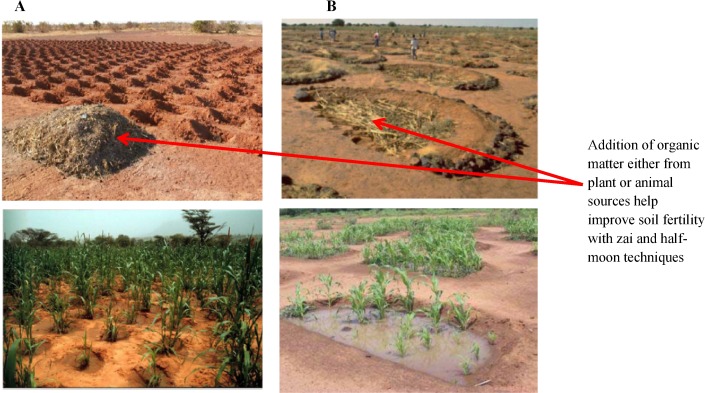Journal of Cleaner Production ( IF 11.1 ) Pub Date : 2018-03-22 , DOI: 10.1016/j.jclepro.2018.03.199 Samuel T. Partey , Robert B. Zougmoré , Mathieu Ouédraogo , Bruce M. Campbell

|
This paper reviewed the prospects for climate-smart agriculture (CSA) development and promotion in West Africa as well as lessons learnt and challenges with a focus on climate change and variability. It was evident from the literature that West Africa is vulnerable to climate change and variability, on account of its socio-economic and physical characteristics. As climate change and variability persists, the region's quest to use agriculture as the mainstream opportunity to deliver on set targets of the sustainable development goals will be strongly challenged without appropriate interventions. Adopting CSA seems to be a suitable strategy to achieving food security while also mitigating and adapting to climate-related risks. Among numerous CSA technologies, the review found (1) agroforestry (farmer-managed natural regenerations), soil and water conservation technologies (zai, half-moon, tie/contour ridges, conservation agriculture) and (3) climate information services as highly valued promising options for climate change adaptation and risk management in West Africa. In addition, institutional settings at the community, national and regional levels such as the establishment of multi-stakeholder innovation platforms, national science policy dialogue platforms on CSA in parts of West Africa and the formulation of the West Africa CSA Alliance were found to be crucial in promoting capacity development and awareness of CSA technologies and innovations in the region. The review found that CSA still faces a number of challenges, including: lack of clear conceptual understanding, limited enabling policy and financing. The prospects of CSA in West Africa hinge on the capacities of farming households and the region's national institutions to understand the environmental, economic and social challenges in the context of climate change, and consequently self-mobilize to develop and implement responsive policies at appropriate scales.
中文翻译:

发展气候智能型农业以应对西非的气候变化:挑战和经验教训
本文回顾了西非气候智能型农业(CSA)的发展和推广前景,以及以气候变化和多变性为重点的经验教训和挑战。从文献中可以明显看出,西非由于其社会经济和自然特征而容易受到气候变化和多变性的影响。随着气候变化和多变性的持续存在,在没有适当干预的情况下,该地区寻求利用农业作为实现可持续发展目标的既定目标的主流机会将面临巨大挑战。采用CSA似乎是实现粮食安全,同时减轻和适应与气候有关的风险的合适战略。在众多CSA技术中,该评论发现(1)农林业(由农民管理的自然更新),土壤和水保护技术(在枣,半月,平交/等高线山脊,保护性农业)和(3)气候信息服务是西非适应气候变化和风险管理的极有价值的有希望的选择。此外,还发现至关重要的是社区,国家和地区各级的机构设置,例如建立多方利益相关者创新平台,在西非部分地区建立有关CSA的国家科学政策对话平台以及建立西非CSA联盟。促进该地区的能力建设以及对CSA技术和创新的认识。审查发现,CSA仍然面临许多挑战,包括:缺乏清晰的概念理解,有限的扶持政策和融资。


























 京公网安备 11010802027423号
京公网安备 11010802027423号